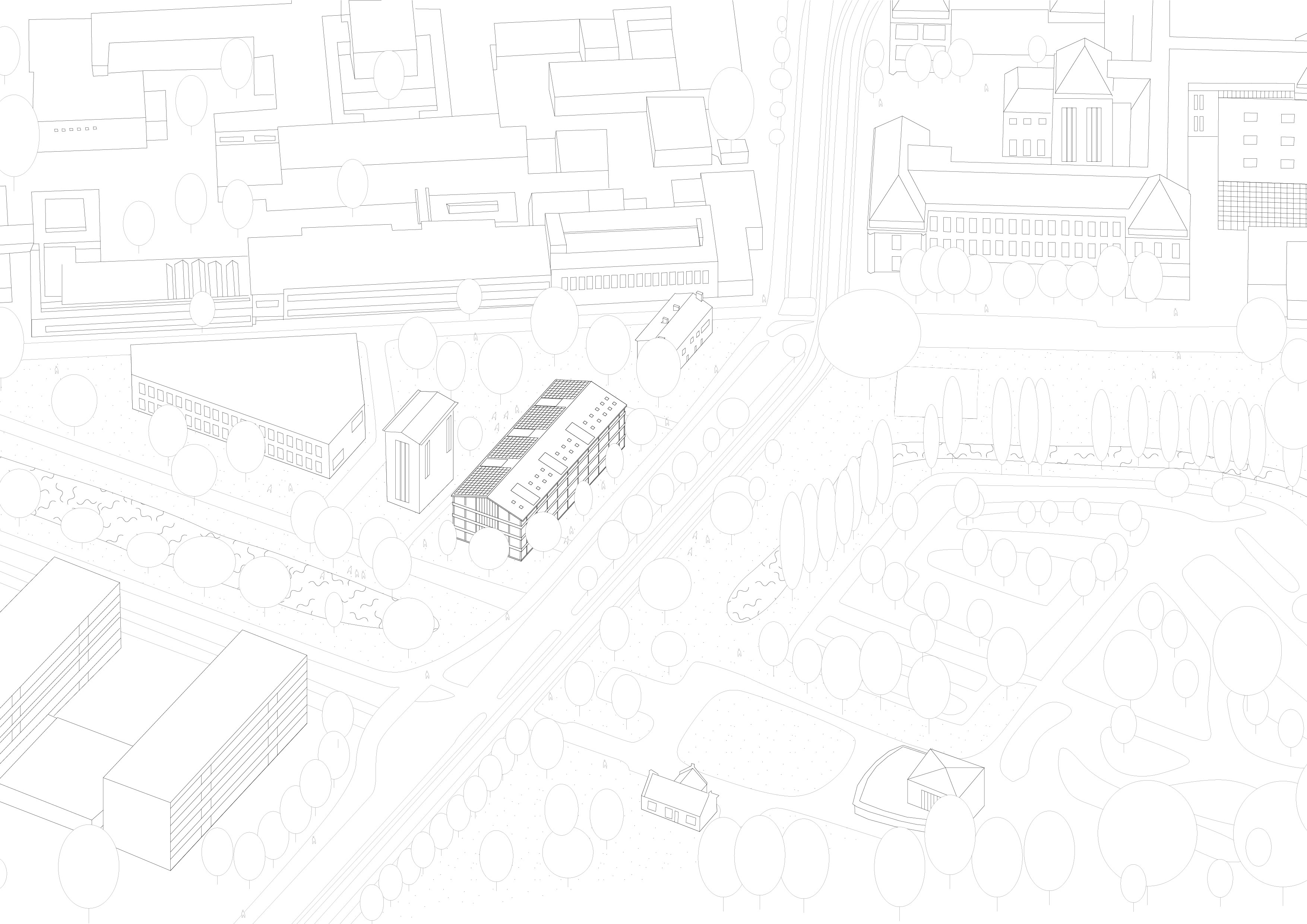

Research Project
In my graduation research, I study and analyse the rapidly changing realm of technology, asking the question of is artificial intelligence going to alter our daily lives. I investigate the evolution of machines from mere tools to intrinsic elements in our domestic lives, thanks to their enhanced responsiveness. Their roles have evolved beyond production and distribution into collaborative tools thanks to breakthroughs in machine learning. Machines, now integral to our social lives, assume unexplored roles within our homes, instigating both programmatic and spatial changes. This shift isn't just a technological evolution; it's a cultural and societal transformation that is directly reflected in architecture. As machines integrate more deeply into our living spaces, they alter the way we live our lives by changing our culture, customs, and lifestyles, turning our homes into responsive, ever-more ‘living’ environments.
My research examines existing technologies, forecasting their potential evolution in the near future using a technique called 'Future Casting', which envisions potential future scenarios. These are not predictions but rather provocations, framed as 'What if…?' questions. These designs serve as thought experiments, drawing inspiration from the extensive research of the topic of technology and architecture. They are an invitation to the public – professionals, academics, and laypersons alike – to engage in a dialogue about the potential impacts of these imagined scenarios.
This design exercise paved the way for a project centred on human-machine relationships, envisioning spaces where humans attune their relation to machines. The project inspects the idea of intelligence and what this concept stands for when we discuss machines. Exploring the possible development of a somewhat vaguely defined artificial intelligence and its possible impact on our domestic life.
The research delves into the intricacies of human-machine relationships, focusing not just on understanding but also critically evaluating and refining them. The goal is to stimulate discussions that delve deep into the nuances of these interactions, highlighting the importance of not just the technological advancements but their applications. Every new machine or technology introduced into our homes demands careful scrutiny, not because the technology itself is inherently dangerous but because its application can have far-reaching implications.
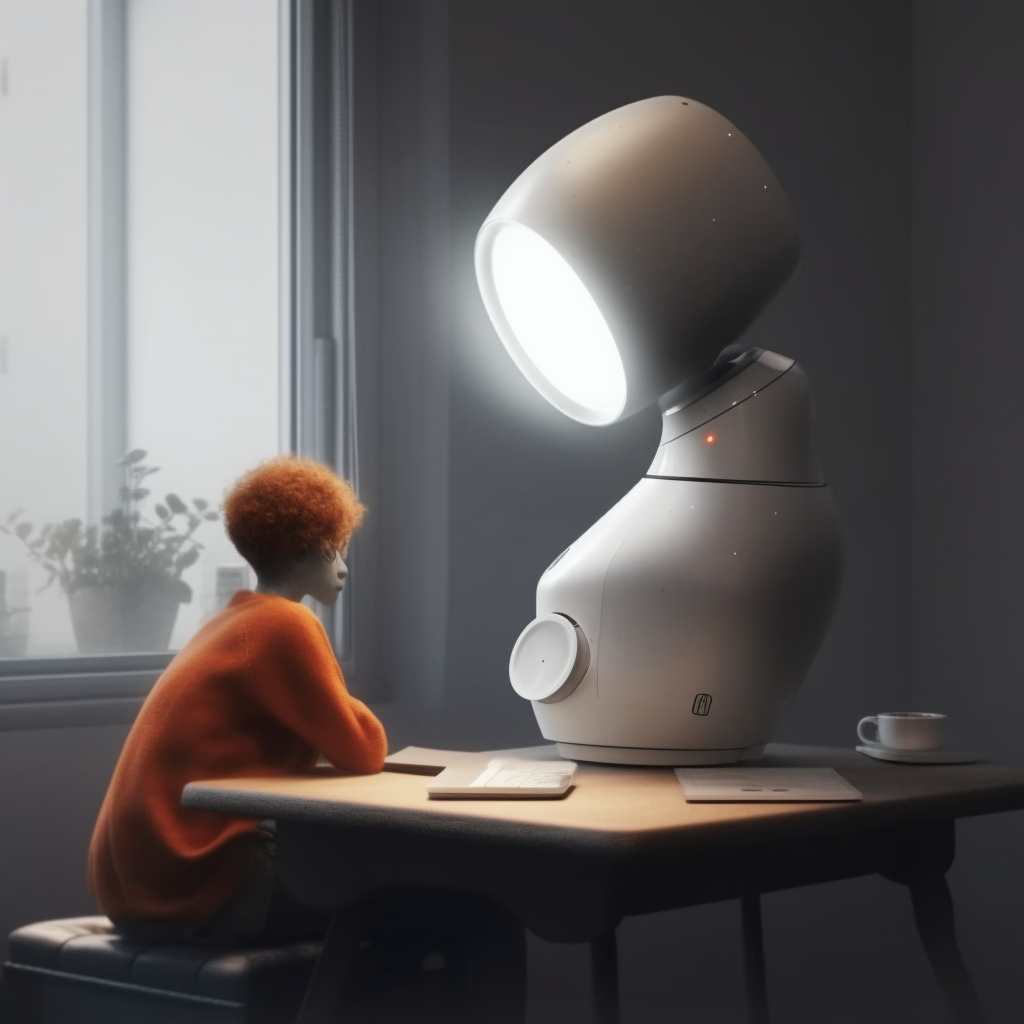
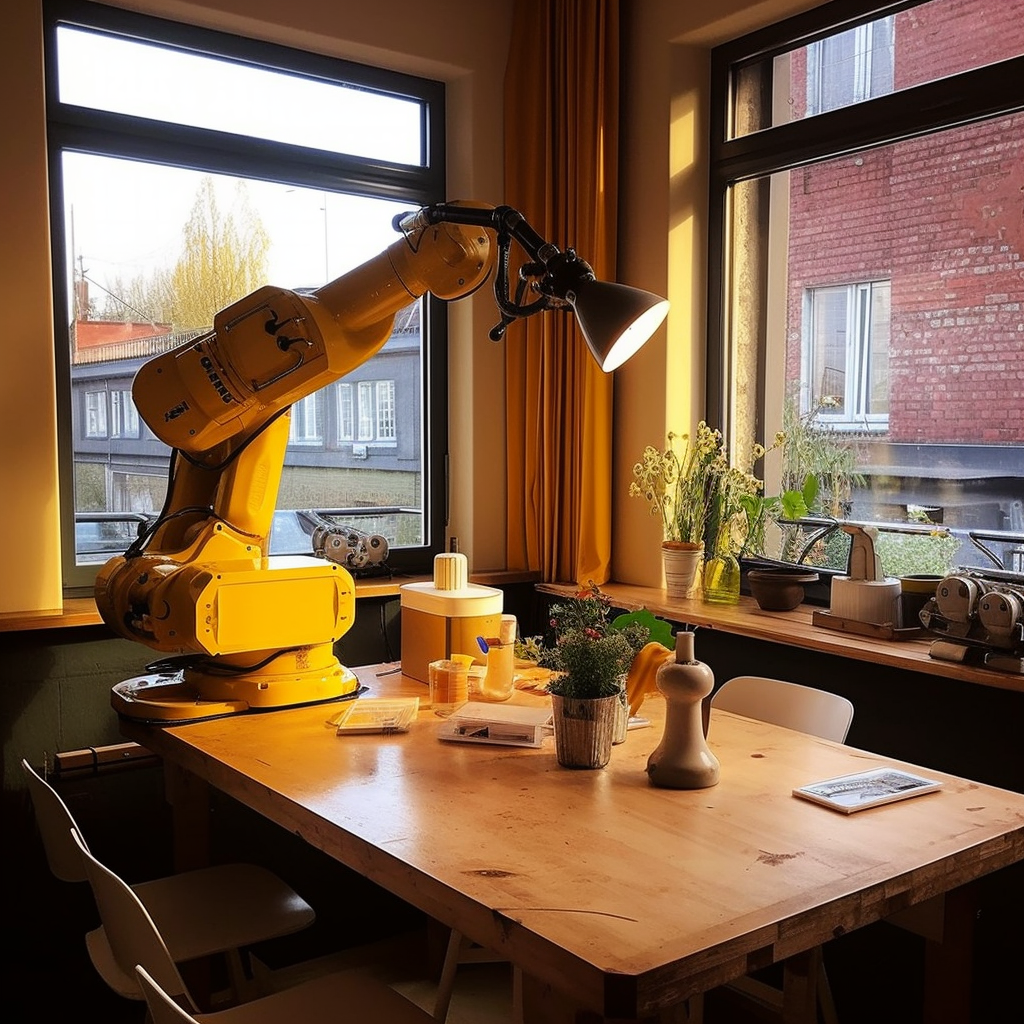
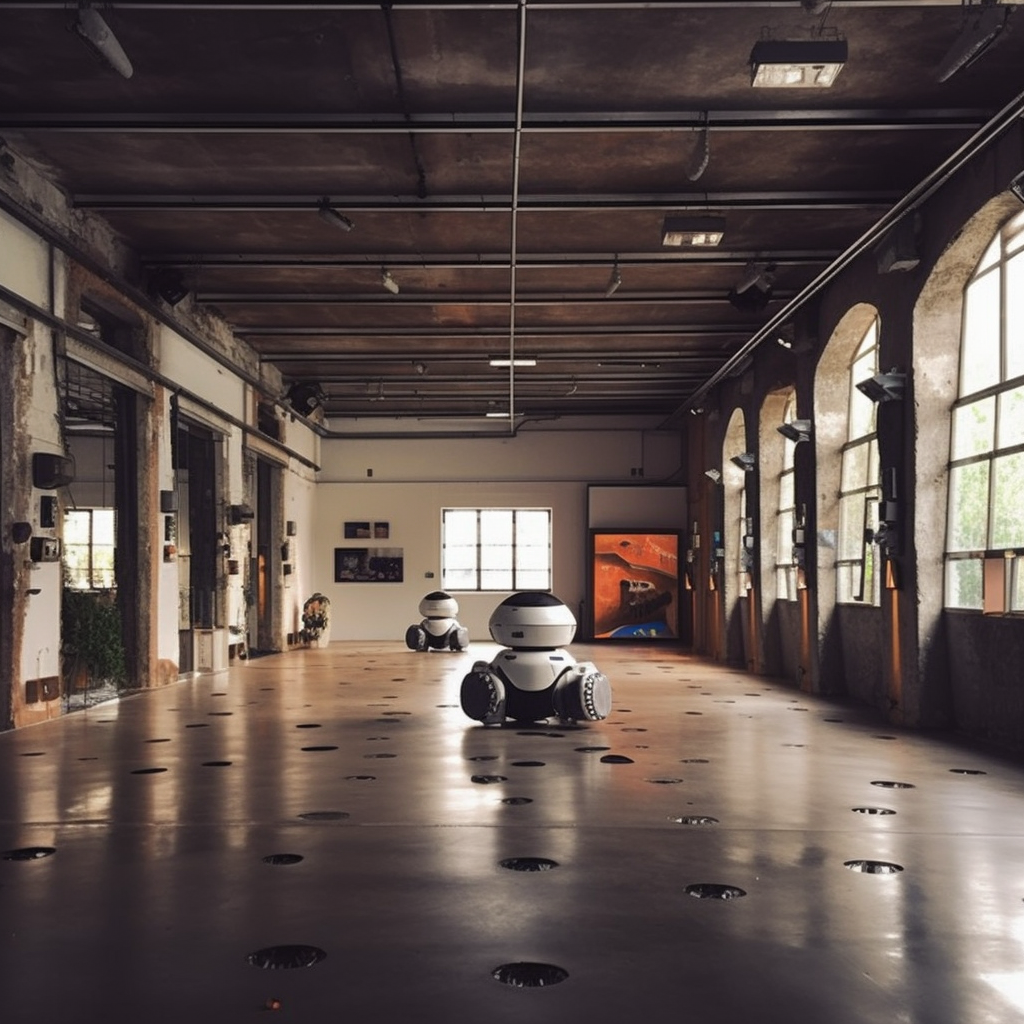
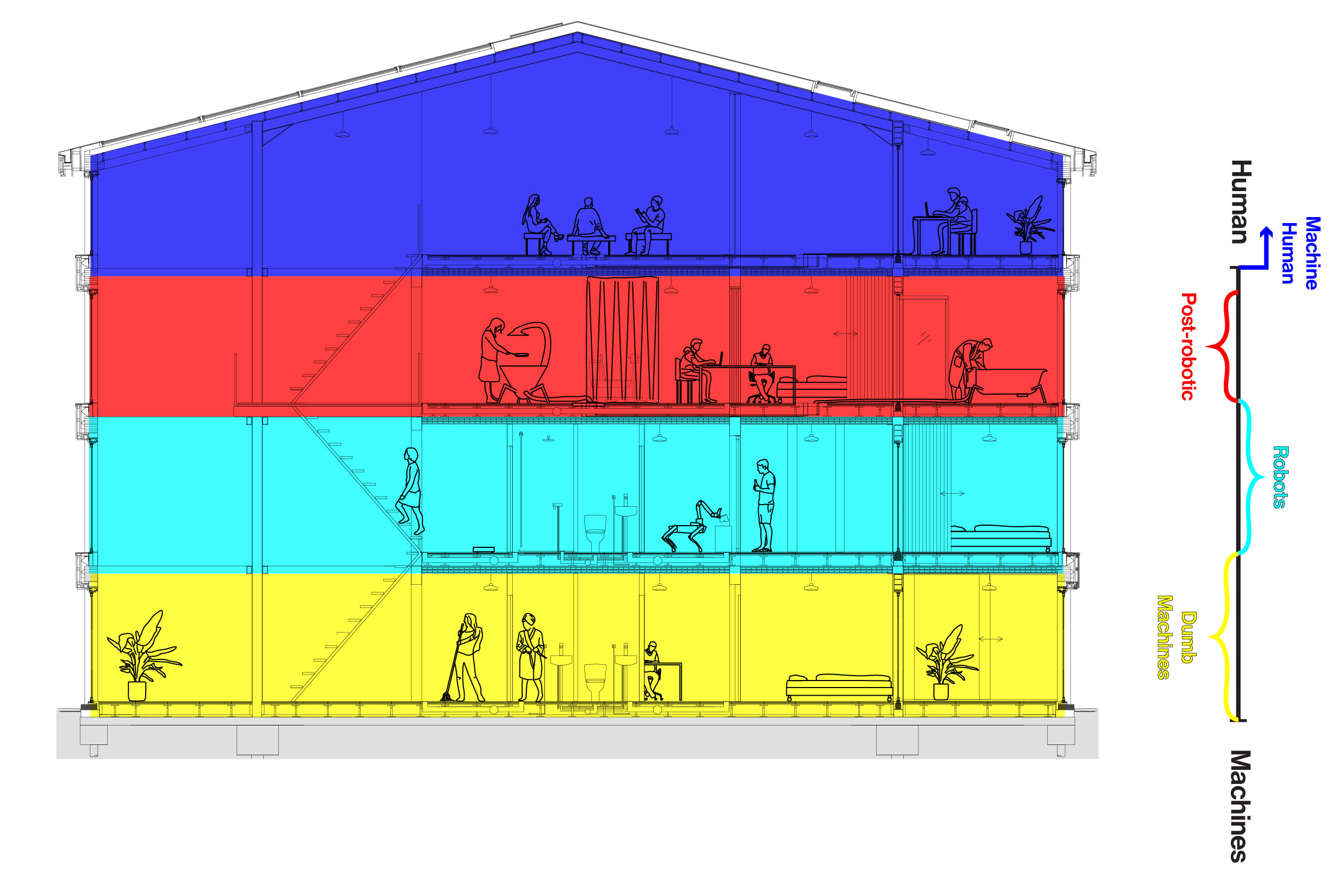
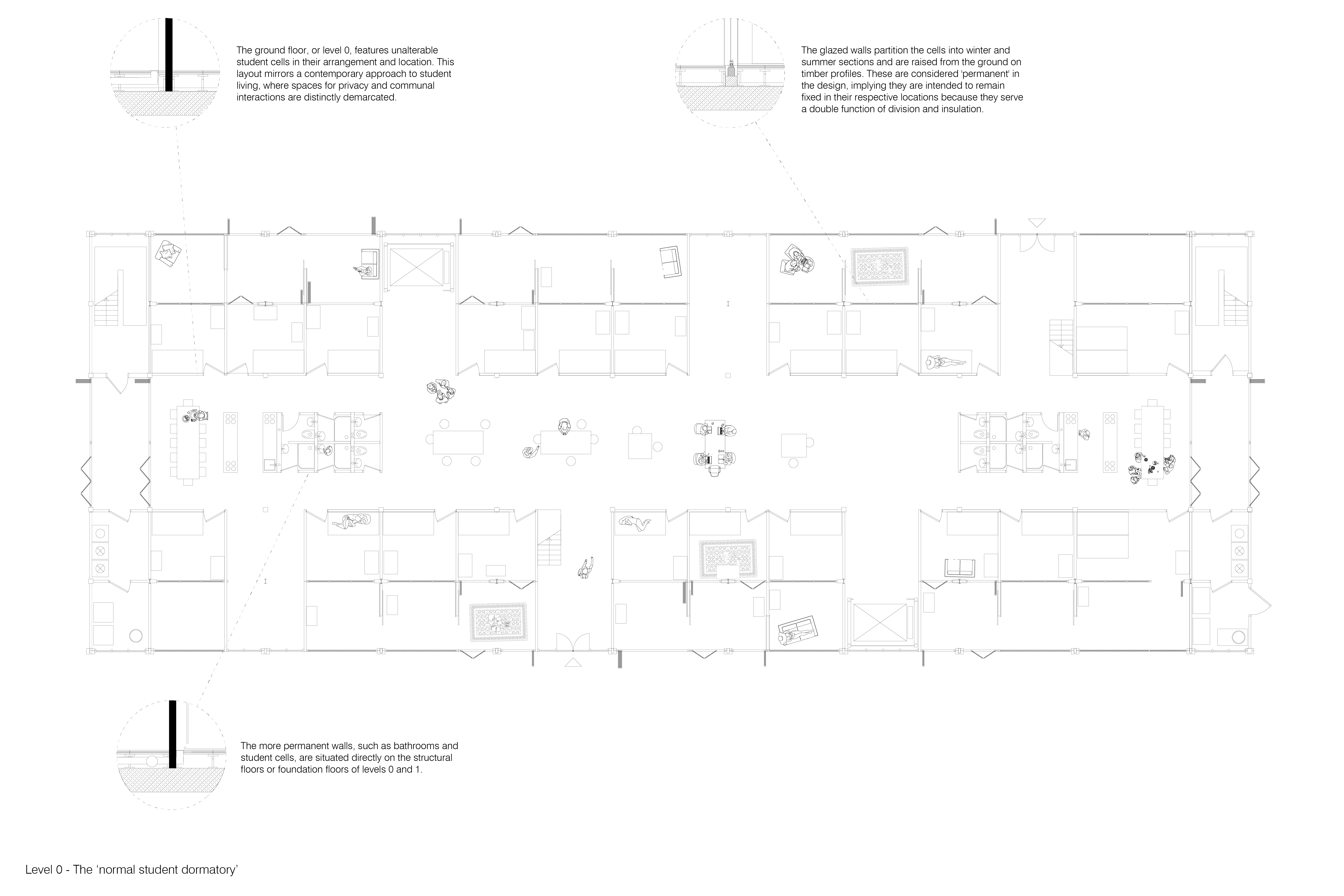
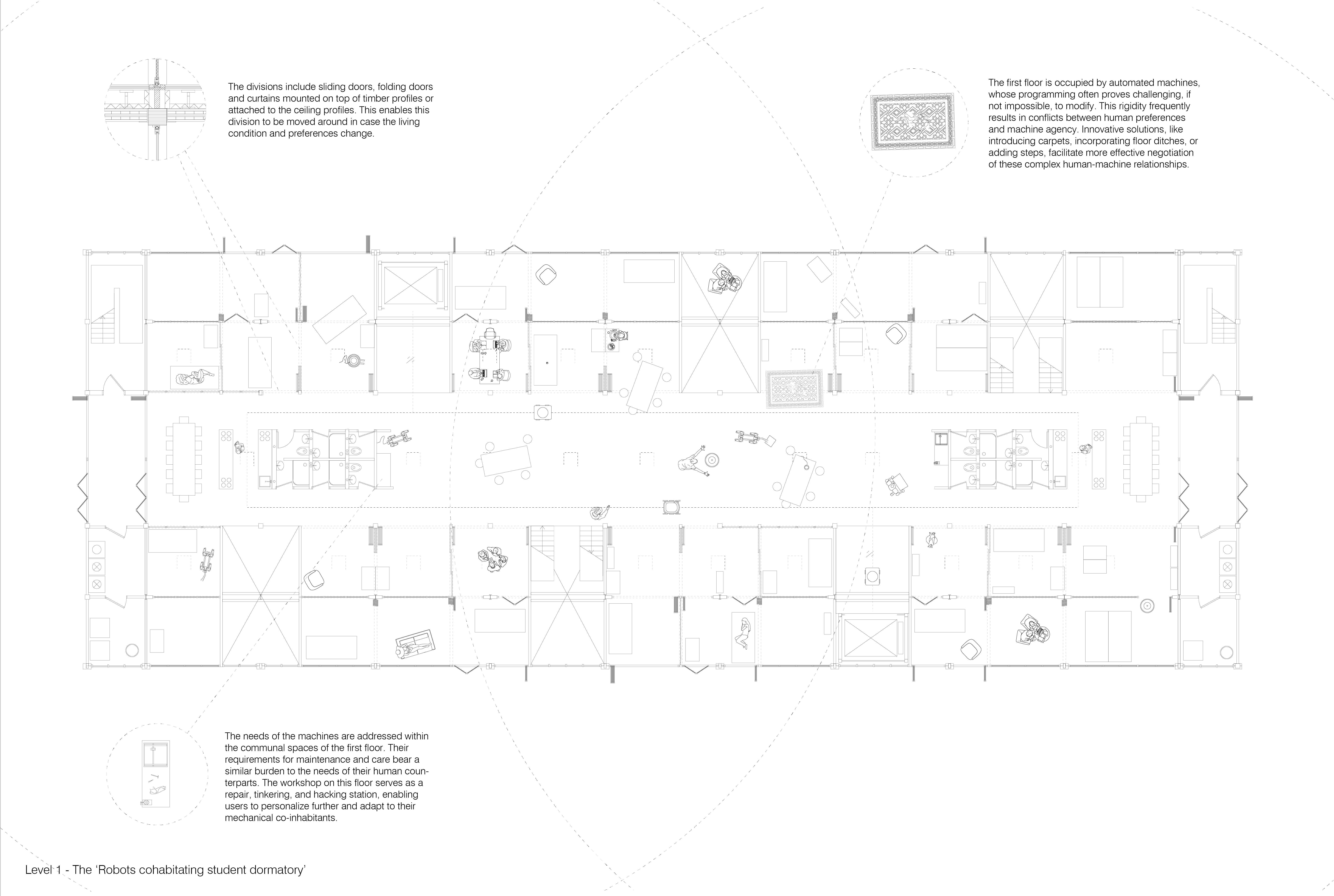
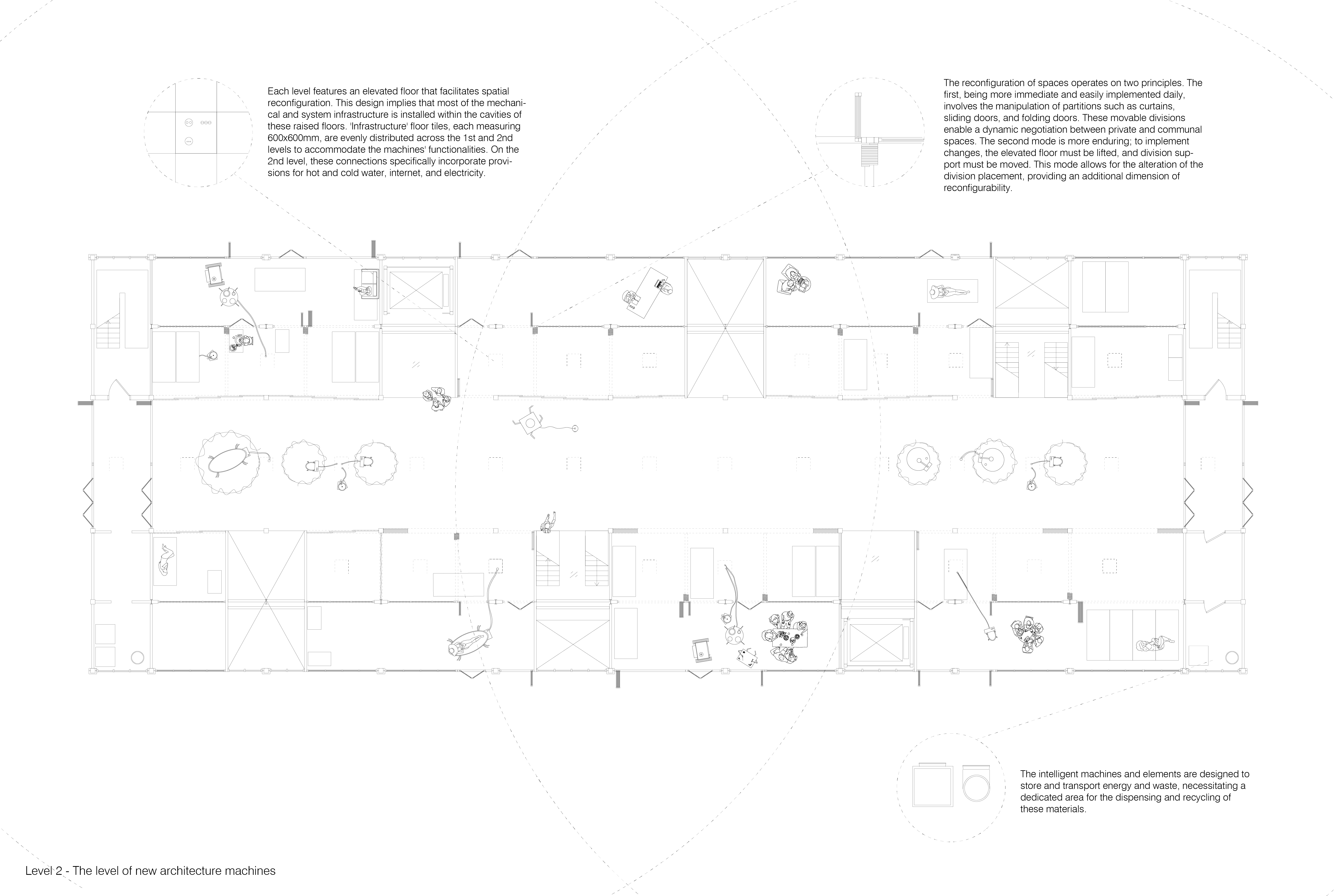
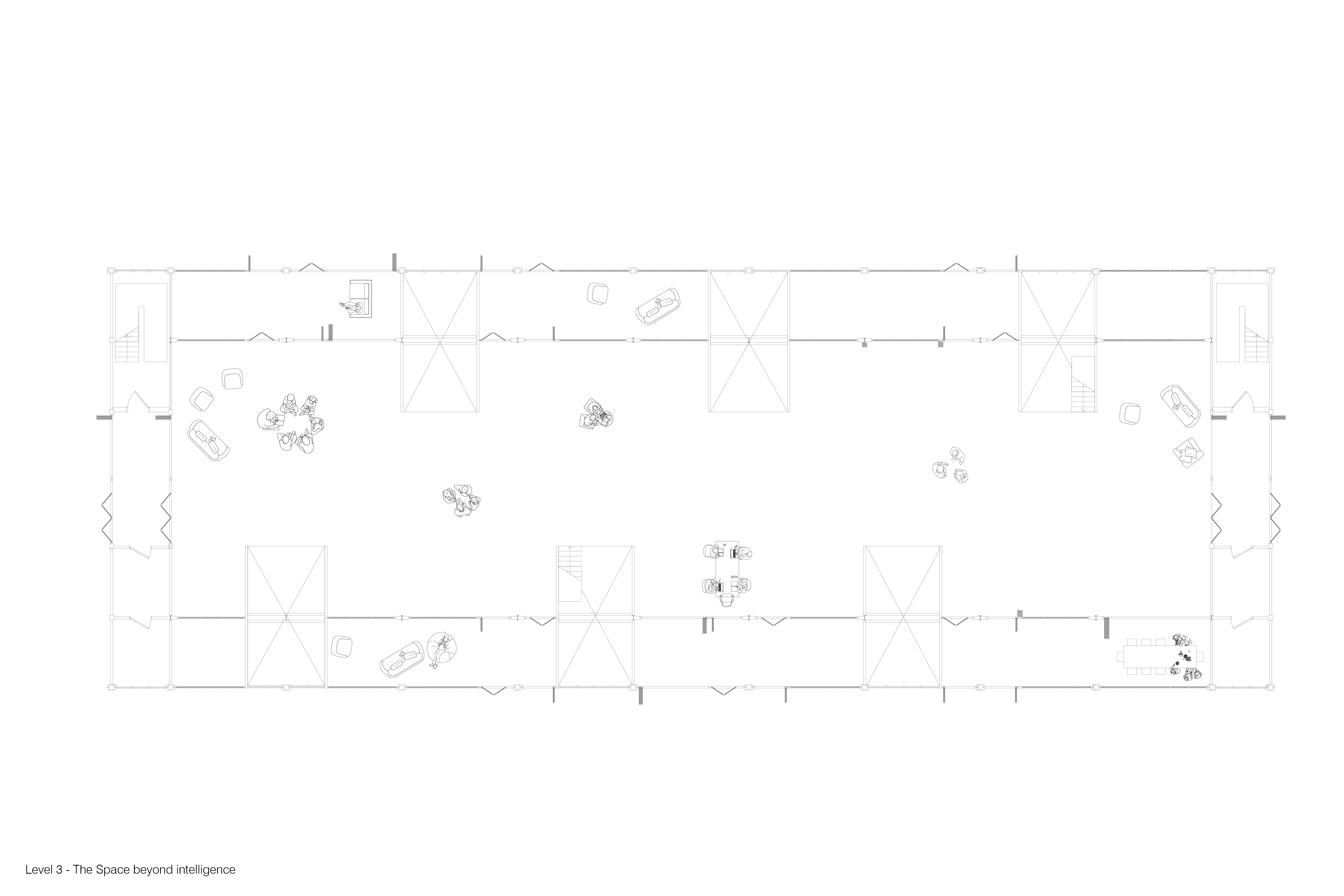
Delft, The Netherlands
2022 - 2023
Delft University of Technology
Explore Lab
With the help of: Victor Muñoz Sanz (Research), Georg Vrachliotis (Design), Georgios Karvelas (Building Technology)